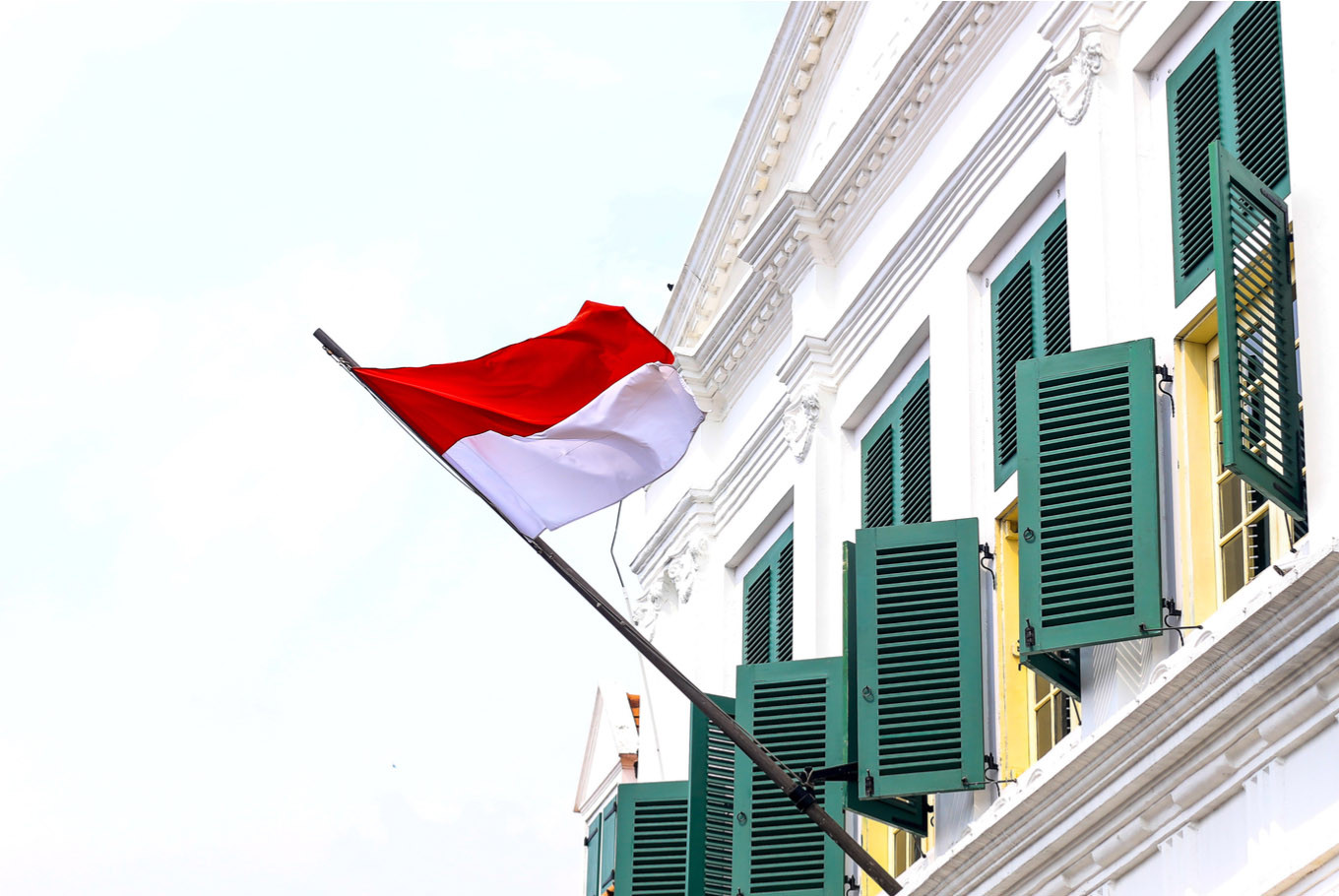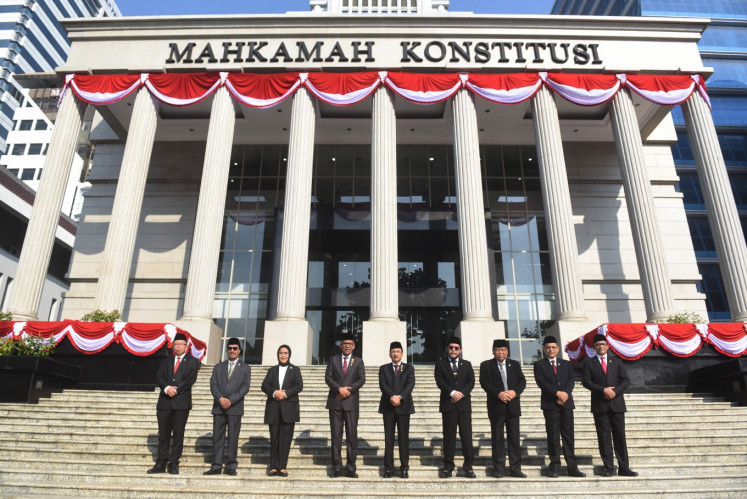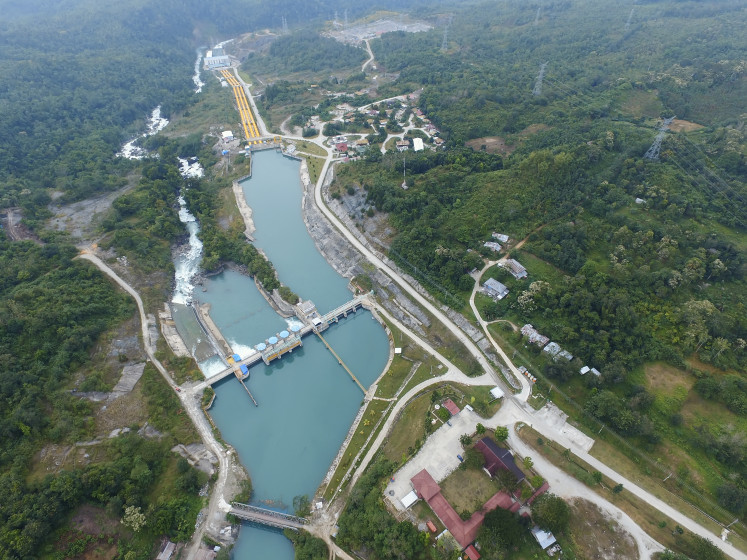Popular Reads
Top Results
Can't find what you're looking for?
View all search resultsPopular Reads
Top Results
Can't find what you're looking for?
View all search resultsThe force of nationalism is strong in Indonesia. This year it will reach fever pitch
The lack of a unifying theme to bind a collection of hundreds of languages, traditional cultures and ethnicities into a nation-state has resulted in a condition defined by what we are not rather than what we are.
Change text size
Gift Premium Articles
to Anyone

G
iven the absence of a unifying thread, Indonesian nationalism has been defined by the spirit of negation rather than an ethos of affirmation.
The lack of a unifying theme to bind a collection of hundreds of languages, traditional cultures and ethnicities into a nation-state has resulted in a condition defined much by what we are not rather than what we are.
The country's founding fathers refused to settle for one position that could easily define Indonesia. Indonesia is neither East nor West, neither an Islamist nor a secular state and for much of the country's history, it refused to acknowledge Western-style democracy while also staying away from the left's totalitarian bent. For Indonesia, it was either Demokrasi Terpimpin (guided democracy) or Musyawarah Untuk Mufakat (deliberation for a consensus).
The only thing that defines Indonesia, the very foundation on which the nation is built, is the idea of a common struggle against a succession of imperialist powers.
Indonesia's myth of creation has been one about a pitched battle between children of the nation who at times used only bamboo spears and the power of prayers to banish the colonizers that sucked the country dry for more than three centuries.
So, if there is one idea that all Indonesians could agree on is that we are not the colonizers.
Regimes change, political parties and politicians come and go, jingoism may ebb and flow, but the common thread in Indonesia's 70-year history is a constant campaign against a perceived enemy, outside forces, foreign countries bent on interfering with our internal affairs, intent on subjugating us and mostly with the aim of taking over our rich natural resources for their own benefit.
It was those perceived threats that motivated Sukarno, Indonesia's flamboyant first president, to launch a military operation to kick the Dutch out of Western Papua in the early 1960s.
This nationalist campaign went into overdrive when he kicked off a campaign to crush Malaysia in the mid-1960s, Operasi Ganyang Malaysia, as he believed that the neighboring Malay state was a holdover from British colonialism.
Sukarno's successor, a low-profile Javanese general Soeharto, had no appetite for external aggression in the name of nationalism, and he used nationalism mostly as justification for his authoritarian agenda.
Soeharto's propaganda machine worked in the country's education system and mass media to cultivate once again the idea that Indonesia was a nation that could drive out colonialist powers only with bamboo spears.
Yet, the biggest lesson on nationalism that Soeharto taught to Indonesia did not come from the history book that his regime printed.
Instead, the harshest lesson about nationalism and the nation's dignity came from the story of how he ended his 32-year rule.
Now, the image of Soeharto signing a letter of intent (LoI) document under the gaze of International Monetary Fund (IMF) managing director Michel Camdessus, with arms folded on his chest, has become a coup de grace, the source of the nation's shame.
This moment is the watershed moment that reignited Sukarno's brand of nationalism, and today we are still living under the shadow of that moment.
Each successive president, probably except Abdurrahman "Gus Dur" Wahid, who officially apologized to the country's former colony East Timor and toyed with the idea of opening diplomatic ties with Israel, which much of the country sees as a colonizer in the Middle East, has gone out of their way to ramp up the nationalism rhetoric.
It was the administration of then-president Susilo Bambang Yudhoyono that began the efforts to put caps on foreign ownership of mining companies and imposed a ban on the export of unprocessed ores.
So if you hear a lot about downstreaming these days, the groundwork has been laid down at least over the past decade. And if today the government could finally control the majority shares of certain gold and mining companies, it is a testament to how strong the force of nationalism is.
Being a politician of the Indonesian Democratic Party of Struggle (PDI-P), the bastion of Sukarno's ideas of nationalism, President Joko "Jokowi" Widodo has fitted the bill perfectly.
His policies run the gamut from expanding the ban on mineral ores, planning to ditch Visa and Mastercard, shutting the door on the importation of second-hand clothes to mandating that science should serve the country's national interest.
Even his stab at internationalism, traveling to Moscow and Kyiv, hosting the Group of 20 Summit or planning to stage the now-canceled Under-20 FIFA World Cup was informed by a deep sense of nationalism.
These moments in the spotlight should teach the world that Indonesia is not to be underestimated, looked down on or ignored, these politicians must have thought. And without a doubt, the G20's success was considered enough to reclaim the nation's lost pride and dignity.
And it is against this backdrop that the whole kerfuffle leading up to Indonesia being dropped by FIFA from hosting the U20 world cup took place.
It does not matter which individual politician from which political party opposed hosting the Israeli team, or what kind of excuses they used to not allow the Jewish state to join the tournament.
The reality is that these politicians operate in an environment so deeply permeated by nationalism that anything that looks like a threat to the nation's integrity or that it interferes with the country's sovereignty should be swatted down, no questions asked.
And if there is one thing that these politicians have grown to know very well is that in the frenzy of an election season, nationalism is always a hot commodity.









